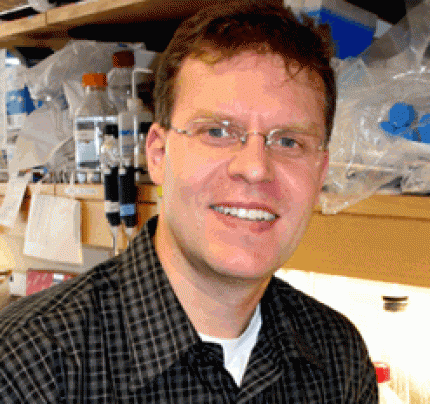
Matthias Hebrok, Ph.D., is the Hurlbut-Johnson Distinguished Professor in Diabetes Research and an Associate Professor of Medicine at the Diabetes Center of the University of California, San Francisco (UCSF).
Dr. Hebrok received his undergraduate degree in cell biology from the Albert-Ludwigs University in Freiburg, Germany, and performed his graduate work at the Max-Planck-Institute for Immunobiology. He carried out his postdoctoral education at the Howard Hughes Medicial Institute at Harvard University, by focusing his research on the molecular aspects of pancreas development.
Dr Hebrok's laboratory uses cell, molecular, and developmental biology tools to decipher the molecular mechanisms that underlie mammalian pancreas organogenesis and pancreatic diseases. This is accomplished by a combination of state-of-the-art conditional regulation of gene expression in transgenic mice as well as sophisticated cell culture experiments. It is their goal to use the information gained from these studies to optimize existing and develop novel methods to generate functional, insulin-producing beta-cells from human stem cell populations, including human embryonic stem cells (hESCs) and induced pluripotent stem cells (iPCs).
One of their goals is to generate functional insulin-producing beta-cells from stem cells by replicating the signaling events during pancreas organogenesis in cell culture. Recent studies have shown that human ES-cells (hESCs) can give rise to pancreatic endocrine cells. However, the endocrine cells formed in vitro are immature and express more than just one hormone. Dr. Hebrok and his team are testing and optimizing conditions to generate fully differentiated endocrine cells, including insulin-producing beta-cells, by supplying additional mesenchymal factors that are present during embryonic development but missing in current cell culture conditions. In addition, they are collaborating with others at UCSF to test the ability of induced pluripotent cells (iPS), generated from human fibroblasts, for their potential to form pancreatic endocrine cells. Successful generation of insulin-producing cells from iPS would open up the opportunity to generate patient-specific cells for cell replacement strategies.
Another goal is to determine the plasticity of mature cell populations within the adult pancreas to test whether exocrine cells can be coaxed into forming endocrine cells upon exposure to appropriate stimuli. Their recent data indicated that pancreatic acinar and duct cells assume a differentiation state similar to embryonic progenitors upon pancreas injury. Furthermore, upon modulation of the Notch signaling pathway, these de-differentiated cells appear to trans-differentiate into endocrine cells, including insulin-positive cells. These findings indicate a previously unappreciated plasticity of mature pancreas cells that we are planning to exploit. The long-term goal would be to identify the signals that allow the generation of beta-cells from the vast reservoir of pancreatic exocrine cells. In addition, Dr. Hebrok and his team anticipate that these studies will reveal novel signals that can be utilized for the directed generation of beta-cells from human stem cell populations.
“Being part of the Brehm Coalition is very rewarding, and challenging, as it requires us to think about type 1 Diabetes as one problem. This approach is different from the usual routine in which we focus on a very specific, detailed question. Here, I have the opportunity to throw out novel and unproven ideas and immediately receive feedback from the other members who are experts in very different aspects of this disease. It’s a lot of fun.”
